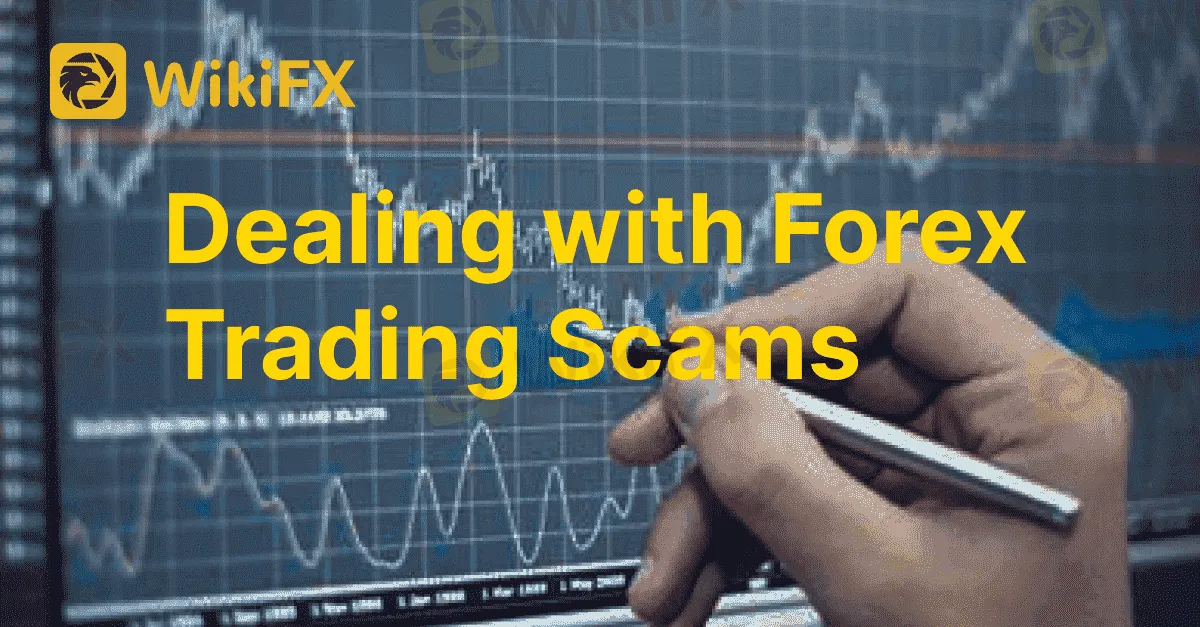简体中文
繁體中文
English
Pусский
日本語
ภาษาไทย
Tiếng Việt
Bahasa Indonesia
Español
हिन्दी
Filippiiniläinen
Français
Deutsch
Português
Türkçe
한국어
العربية
Dealing with Forex Trading Scams
Abstract:Forex trading scams have been a problem in the European market for quite some time now. Many traders have fallen victim to these scams, and as a result, have lost their hard-earned money. However, the European market has taken several steps to prevent and deal with forex trading scams.

Forex trading scams have been a problem in the European market for quite some time now. Many traders have fallen victim to these scams, and as a result, have lost their hard-earned money. However, the European market has taken several steps to prevent and deal with forex trading scams.
Firstly, the European Securities and Markets Authority (ESMA) has implemented several regulations to protect investors from forex trading scams. For example, the ESMA has limited the amount of leverage that brokers can offer their clients, which reduces the risk of traders losing a significant amount of money. Additionally, the ESMA requires brokers to provide detailed information about their products and services, including risks and fees, to their clients before they start trading.
Another way that the European market deals with forex trading scams is by encouraging traders to report any suspicious activity to the authorities. The ESMA has set up a whistleblowing portal where traders can report any concerns they may have about their broker or any other financial firm. This way, the authorities can investigate and take action against any fraudulent activity.
Furthermore, the European market has set up a regulatory framework to ensure that forex brokers are properly licensed and regulated. This framework is called the Markets in Financial Instruments Directive II (MiFID II) and it requires brokers to adhere to strict regulations in order to operate in the European market. The MiFID II ensures that brokers are properly capitalised, have adequate risk management systems in place, and that their clients' funds are held in segregated accounts.
Despite the measures put in place by the European market, forex trading scams still occur. Therefore, it is important for traders to be vigilant and do their due diligence when selecting a broker. One tool that traders can use to help them make an informed decision is WikiFX.
WikiFX is a leading forex platform that provides traders with detailed information about forex brokers. WikiFX has a database of over 25,000 brokers, which traders can search through to find information about a broker's regulatory status, trading conditions, and customer service. Additionally, WikiFX provides a rating system for brokers, which is based on the feedback of their customers. This way, traders can get an idea of how other traders have experienced the broker's services.
Moreover, WikiFX provides traders with a comprehensive blacklist of brokers that have been reported for fraudulent activities. This blacklist is regularly updated, and traders can use it to avoid brokers that have a history of scamming traders.
In addition to providing information about brokers, WikiFX also offers traders a range of educational resources to help them improve their trading skills. These resources include trading strategies, market analysis, and trading psychology tips.
Overall, the European market has taken significant steps to prevent and deal with forex trading scams. However, it is important for traders to be vigilant and do their due diligence when selecting a broker. One tool that traders can use to help them make an informed decision is WikiFX. To learn more about WikiFX and how they can help you, visit their website at www.wikifx.com.

Disclaimer:
The views in this article only represent the author's personal views, and do not constitute investment advice on this platform. This platform does not guarantee the accuracy, completeness and timeliness of the information in the article, and will not be liable for any loss caused by the use of or reliance on the information in the article.
Read more

Justice Served: Illegal Investment Scheme Ends in RM28 Million Repayment
The Kuala Lumpur High Court has ruled that a Singaporean businessman, Chan Cheh Shin, must return RM28 million to 122 Malaysian investors after the court determined that his investment operations were conducted illegally.

RM900,000 Scammed: The Hidden Dangers of Online Investment Schemes
A 53-year-old factory manager from Malaysia has fallen victim to an online investment scam, losing over RM900,000 of her savings. This case underscores the growing threat of online scams preying on unsuspecting individuals.

Tokyo Police Arrest 4 for Unregistered FX Trading Scheme
Four men in Tokyo were arrested for running an unregistered FX trading operation, collecting over ¥1.6 billion from 1,500 investors.

Doo Group Expands Its Operations with CySEC License
Doo Financial, part of Doo Group, receives a CySEC license, allowing FX/CFD services in Europe. This strengthens its global presence and regulatory standards.
WikiFX Broker
Latest News
BSP Shuts Down Uno Forex Over Serious AML Violations
ACY Securities Expands Global Footprint with South Africa Acquisition
Why Even the Highly Educated Fall Victim to Investment Scams?
Warning Against Globalmarketsbull & Cryptclubmarket
Rupee gains against Euro
Tokyo Police Arrest 4 for Unregistered FX Trading Scheme
Axi Bids AUD 52M to Acquire Low-Cost Broker SelfWealth, Outbidding Competitor Bell Financial
Crypto Influencer's Body Found Months After Kidnapping
US Regulators Tighten Oversight on Bank Anti-Money Laundering Efforts
Doo Group Expands Its Operations with CySEC License
Currency Calculator


